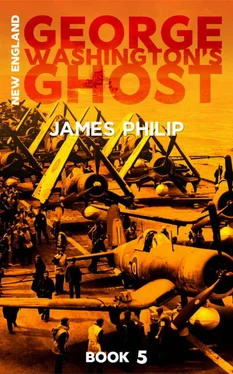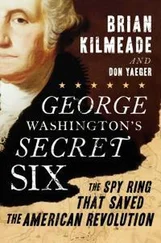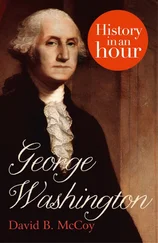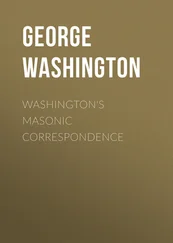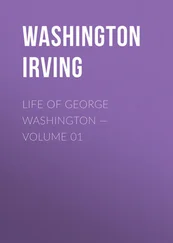Gadfly opportunists like Roger Lee, had never been a man to contemplate long-term consequences when he saw personal profit, or a chance to stab an enemy in the back. His detractors, of whom there were countless, jested sourly that Lee was the sort of man who would have given Judas Iscariot a free pass for his share of the thirty pieces of silver.
Here, in the midst of the seat of Colonial power in New England, every seat in the relatively small, historic hall where once, two centuries ago the traitors of 1776 had plotted their failed rebellion, was taken and newspaper and TV people stood at the back, waiting for the fireworks to begin.
Nowadays, from the outside the old building looked like one of the white-washed non-conformist Wesleyan chapels which dotted the counties around the city. Set in leafy grounds in the heart of the great, booming metropolis of imperial Philadelphia, the city fathers had long ago, ripped out the old fittings, and turned it in a community theatre and function room for the local Parish Council. Normally, casual visitors were discouraged; its doors were locked and the gates to the plot of land upon which it sat, barred. Unlike in Boston where public references to ‘the tea Party’ or to the so-called ‘Boston Massacre’ had always been banned outright, either in tourist literature, directional or location signage, in Philadelphia, the building was still actually called ‘Liberty Hall’ on street maps of the city’s financial district.
However, while outside there was a rusting commemorative plaque on the north wall of the building facing Chestnut Street bearing the names of the signatories to that wicked ‘Declaration of Independence’ who had been executed for their treason back in 1776; it was very much in the shadow of the twelve-feet high bronze statue of General William Howe – mounted triumphantly on a rearing thoroughbred – the victor of the Battle of Long Island, and the scourge of the Hudson Valley campaign which had sundered the defeated First Thirteen and brutally crushed the rebellion even before the winter of that fateful year, 1776, had clamped down across the land.
In their mercy ‘the English’ had only executed twenty-four of the fifty-six signatories, and many of those spared had subsequently pledged renewed allegiance to King George III, and quietly been compensated for the land and miscellaneous property sequestered by the Crown in the autumn of 1776. However, for John Hancock, President of the traitorous Second Continental Congress, there had never been any question of clemency although once he was safely buried the witch hunts had ceased, and there had been no more hangings.
Even two centuries ago the then, nascent Empire, understood that the business of ‘the Empire’ was business itself, and pogroms and blood-letting – while they had their place – were generally, bad for business.
Since the modern-day traitor Isaac Fielding had re-labelled William Penn House as ‘Liberty Hall’ in that scurrilous diatribe ‘Two Hundred Lost Years’, there had been a movement to have the ‘execution plaque’ taken down, or perhaps, removed to the Colonial Museum down on the west bank of the Delaware River.
In any event, it was a strange place to launch a Virginian election campaign; even given that Roger E. Lee was the sort of politician who only really ever went out of his way to talk to the converted.
One of Lee’s distant ancestors, Henry ‘Light Horse’ Lee, an obscure minor figure in the revolt of 1776, whom, in their wisdom the English had ‘graciously rehabilitated’, supposedly to found the most ‘loyal’ of ‘loyal families’.
History knew ‘Light Horse’ as the man responsible for so badly fortifying Manhattan and Long Island that George Washington and the Continental Army, had they escaped the clutches of the Howe – ‘Black Jack’ the Admiral and William the ruthless soldier – brothers at the Battle of Long Island, in August 1776, would have had no choice but to have fled up the Hudson Valley in disarray. Later, the British had installed ‘Light Horse’ as Governor of Virginia, demonstrating a Georgian sense of humour few had, until that time, suspected in the Americas, the first of several members of the Lee family to occupy the position, in which post he had, probably to nobody’s surprise, proven to be as inept as a colonial governor as he had as a general in the Revolutionary Army!
Funnily enough, although Roger Lee frequently cited ‘Light Horse’, he hardly ever mentioned Robert E. Lee , the solitary ‘great’ man of the clan; the man who might have won the Great War a year early but for a sniper’s bullet cruelly finding its mark in the forests of the Argonne in 1865. Perhaps, his reticence was because even Roger, in some crevice of his consciousness knew, just knew, that he must only pale into insignificance in the presence of such unparalleled greatness…
“My friends,” he began, with his arms apart, hands raised like a whiskey preacher, “thank you for coming here today at this momentous time in our history. Once again, we find ourselves confronted by a terrible war that was none of our own doing; into which we, the peoples of New England have been dragged by the incompetence and inattention by a foreign regime which knows little of us, nor cares…”
Lee was genuinely surprised when this opening verbal salvo did not strike a stronger resonance in the hall, or rather, hardly any response at all bar a few desultory mutters of concurrence, and one or two half-hearted claps.
Otherwise his audience simply stared at him.
War was far from, per se, bad, for the great men of New England.
In fact, all the evidence was that it was good for business.
“Many times,” Lee went on, clearly disappointed, “I took my fears, my forebodings to the Governor’s office. But was I listened to? NO! Now look where we are today!”
Problematically, any seasoned watcher of politics will confirm that even a man so full of his own importance that it never occurs to him that even his political allies regard him as a self-serving buffoon, can perchance stumble upon a magic, opinion-changing formula. Usually, by accident. In Roger E. Lee’s case, it helped his cause that he was a man compulsively addicted to the sound of his own voice and that he had the moral compass of an alley cat, because sometimes it took a lifetime to trip over, unwittingly, a cause which perfectly matched one’s meagre gifts.
“Now we are about to reap the whirlwind, my friends!”
Still, no reaction other than a few noncommittal shrugs.
Roger Lee bored on.
“The English ,” he complained angrily.
Here and there people were shifting uncomfortably in their chairs.
Most New Englanders considered themselves to be English, or of Irish, or Scottish, or Welsh stock, or just plain British; it was only when you went further out West that people started calling themselves Louisianans, or Missourians, or Kentuckians, or Dakotans or Columbians, or by nicknames and abbreviations derived from the ancestral names of native tribes or lands upon which they lived, like Iowans or Lakotans, or Arizonians, or Mesans. Whereas, here in the East, everybody knew they were ‘of their colony’ yet also New Englanders, intrinsically in some way British unless they had had the sad misfortune to have come from some other European land.
“The English have already lost Jamaica and one of their battleships. At this very moment one of their monstrously expensive new aircraft carriers is sitting in Hampton Roads like a burned-out wreck. Look what has happened to stock prices in the last week! And that was before the disastrous news from the South West started coming in. Is it any wonder that the English tried to keep all that from us?”
Читать дальше
